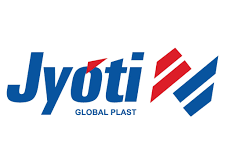Bengaluru, January 17, 2025: The Indian EdTech sector is actively bridging the geographical divide in education and making quality learning accessible to millions. According to a report produced jointly by the Internet and Mobile Association of India (IAMAI) and Grant Thornton Bharat, 98% of teachers and 69% of parents recognize its role in overcoming geographical barriers. The report, titled ‘Impact Study of EdTech in India: Driving Innovation & Creating Opportunities’, was released today at the India Digital Summit (IDS). The report is supported by Leadsquared and Infinity Learn.
The report underlines that EdTech platforms provide access to high-quality education services, resources, and courses that may not be available locally. This includes video lectures, interactive modules, and virtual classrooms, ensuring that students from diverse backgrounds can receive quality education regardless of their geographic location.
The report also highlights that 94% of students and 84% of teachers find EdTech content engaging, and the platforms are bridging the gap between academic knowledge and industry demands. This alignment is fostering employability across fields, supporting India’s vision for an inclusive, future-ready education system.
According to the report, 85% of students credit EdTech with improving learning outcomes. Additionally, 86% of users highlight the economic accessibility of EdTech courses, and 87% of students value its contribution to real-world skills like coding and AI, underscoring its relevance in workforce development.
The report points out that by leveraging the 4A Framework: Academic Quality, Accessibility, Affordability, and Advancing Employment, the Indian EdTech sector has addressed key gaps in traditional education systems. EdTech’s commitment to accessibility is particularly evident in rural and underserved regions, where it plays a key role in increasing student participation.
The report highlights that 98% of teachers recognize EdTech’s contribution in extending quality education to learners from rural and marginalised backgrounds, and 61% of students acknowledge the availability of content in regional languages. However, challenges such as connectivity issues and insufficient accommodations for learners with special needs persist, creating opportunities for further growth and innovation.
As adoption surges and innovation thrives, the EdTech sector has also emerged as a critical enabler of the National Education Policy (NEP) 2020. The NEP emphasizes personalized, multidisciplinary learning and seamless integration of technology. Through interactive content and flexible learning modules, EdTech platforms are translating these principles into actionable outcomes.
Aligned with NEP 2020, the EdTech sector’s evolution underscores its potential to address challenges while capitalizing on emerging opportunities. The report also contains key recommendations from the industry for stakeholders. It has been suggested that the 18% GST on EdTech services be revised to improve affordability, targeted subsidies be introduced, and public-private collaborations be promoted. Service providers need to adopt hybrid learning models, offer skill-based courses in high-demand fields such as AI and data analytics, and ensure transparency in operations. It is also important for the ecosystem to prioritize last-mile solutions, such as offline access and regional language content, while championing responsible technology use, ethical AI practices, and enhanced cybersecurity. These measures will enhance the sector’s ability to scale and drive long-term impact.
Mr. Prateek Maheshwari, Co-Founder of PhysicsWallah (PW) and Chair of the India Edtech Consortium (IEC), said, “As per the latest data released by the Ministry of Education, the total enrolment of students in schools across India in 2023-24 dropped substantially compared to the last few years. It is a matter of great concern for all stakeholders in the education ecosystem. At the same time, another encouraging statistic is that 90% of youth across the country have access to smartphones according to the ASER 2023 report. This is where Edtech platforms may prove to be a game changer as they remove the barriers of physical classrooms and can take education to the remote corners of the country. While doing so, the sector needs to solve certain hurdles like creating low-bandwidth solutions and safeguarding data privacy.”
“Technology is vital to education delivery, but effective outcomes need supportive environments. India’s EdTech sector is transforming education delivery, enhancing accessibility, and empowering learners and educators, fostering a more equitable knowledge economy,” said Mr. Dharmender Jhamb, Partner, Grant Thornton Bharat.
Mr. Prashant Singh, COO and Co-founder of LeadSquared said, “As someone who’s been deeply involved in the education technology space since its early days in India, I have seen first-hand how edtech has democratized learning in unprecedented ways. What’s particularly exciting is how the sector is moving beyond traditional academics to equip students with cutting-edge skills in AI and coding that today’s workforce demands. Having partnered with leading educational institutions throughout this journey, we didn’t just want to be observers of this transformation – we wanted to be enablers. We take pride in empowering institutions and educators with technology that streamlines learning experiences, improves engagement, and delivers measurable outcomes. Seeing our partners scale their impact reinforces our commitment to advancing the education ecosystem.”
“We are glad to be a part of this survey. Its valuable insights will guide policymakers and industry leaders in driving sustainable growth and equitable impact in the EdTech sector. With the growing dependency of learners on EdTech for academic success, our responsibility to address their unique needs has grown. I am proud that the EdTech sector has earned the trust of learners and parents in shaping children’s futures. We are committed to further supporting them by offering quality, accessible, and personalized education through a Hybrid learning model, focusing on outcome-based learning, empowering learners to thrive without the need to relocate to other cities,” said Mr. Ujjwal Singh, Founding CEO – Infinity Learn by Sri Chaitanya.
 Newspatrolling.com News cum Content Syndication Portal Online
Newspatrolling.com News cum Content Syndication Portal Online







